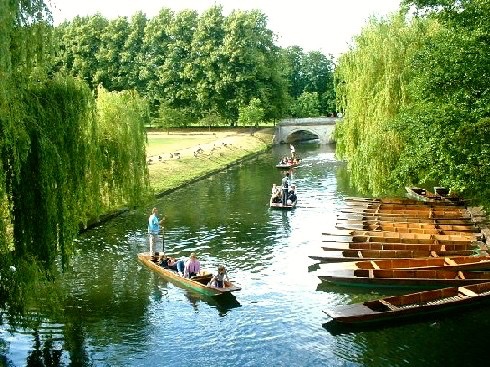 |
History
The history of Cambridge dates back at least 3,500 years where the remains on an old farmstead have been found. There is also evidence of occupation during the Iron Age on Castle Hill, which was also the site of an old Roman Fort. Evidence of Roman farmsteads have also been discovered. By the end of the 5th century the Anglo-Saxons had begun occupying the area on and around Castle Hill which became known as Grantebrycge. which later became known as Cambridge. During the late 800's under Viking Rule, the rapidly growing town moved its centre to the right bank of the river, now known as the Quayside. After the Saxons returned to power the town continued to expand. Churches, merchant Houses and a Mint were built.
In 1068 William the conqueror built a Castle on Castle Hill. The town continued to prosper and in 1209 the university was founded. Unfortunately the town was severely affected by the Black Death in 1349 and a second national epidemic in 1361 resulting in the town north of the river being almost wiped out. However in the following centuries the town and university continued to grow and prosper. During the 19th century Cambridge expanded rapidly and 1845 was linked to London and Norwich by the great Eastern Railway.
 |
| Kings College |

No comments:
Post a Comment